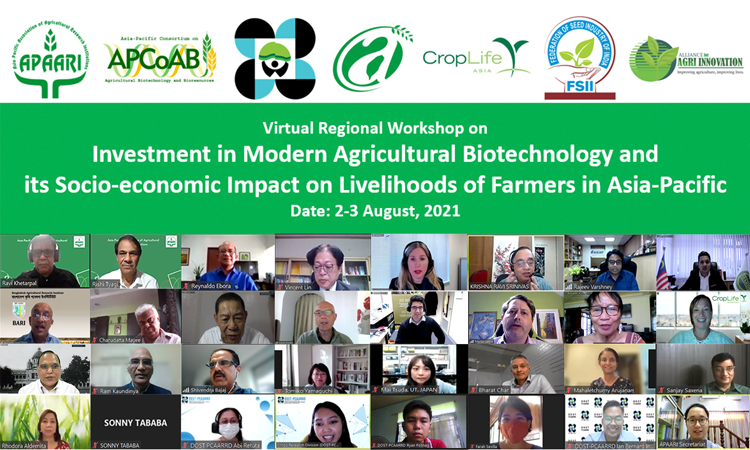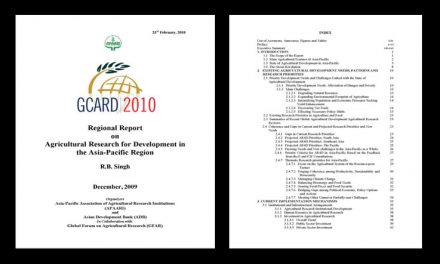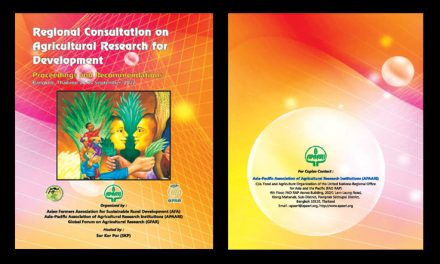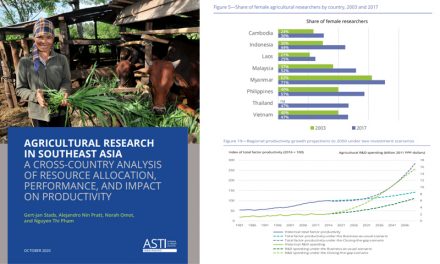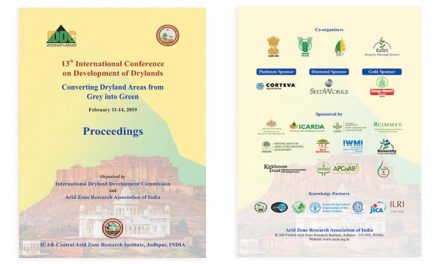Agricultural biotechnology offers innovative technologies and applications in many key aspects of agriculture and environmental protection. While supporting sustainability, agricultural biotechnology provides technically and commercially viable solution to mitigate the challenges of food and nutritional security, contributing significantly towards achieving the 2030 Sustainable Development Goals (SDGs). There has been an expansion of investment portfolio to adopt existing and new biotechnologies and innovations, but despite the proven socio-economic benefits of these technologies, a significant rise in investment is required to promote agri-biotechnology.
Asia-Pacific Association of Agricultural Research Institutions (APAARI), under its programme Asia-Pacific Consortium on Agricultural Biotechnology and Bio-resources (APCoAB), has organized Virtual Regional Workshop on Investment in Modern Agricultural Biotechnology and its Socio-economic Impact on Livelihoods of Farmers in Asia Pacific, held from 2-3 August, 2021 in collaboration with the Philippine Council for Agriculture, Aquatic and Natural Resources Research and Development (PCAARRD), Philippines; Council of Agricultural (COA), Taiwan; CropLife Asia (CLA), Singapore; Federation of Seed Industry of India (FSII), India with the following objectives:
- Assessing the investment in agri-biotechnology and its effects on livelihoods of farmers in the Asia-Pacific region.
- Scoping innovative ways of enhancing the investment in important areas of agri-biotechnology in the Asia-Pacific region.
- Enabling government policies to attract investors from private sector for R&D and to promote agri-biotechnologies in the region.
During the two-day workshop, three sessions were organized – Investment Status and Impacts in Modern Agricultural Biotechnology; Case Studies: Investment and Impact; Impacts of Enabling Policies for Enhanced Investment; and a Panel Discussion on Scoping Investment in Modern Agricultural Biotechnology. Eminent global experts from 17 countries contributed to the discussion during the regional workshop. 984 participants registered for the regional workshop, out of which 424 (researchers and research managers from governments, academia, industry and NGOs) took part from 33 countries of the Asia-Pacific region.
Following key recommendations emerged out of the workshop: –
- Prioritization of public and private investments towards Agri-biotechnology
- National and Regional (Asia-Pacific) R&D collaborations and/or partnerships
- Capacity-building activities focusing on crop development and varietal improvement using new breeding techniques
- Investment in Knowledge Management and communication to promote biotechnology and address political and social concerns
- Development of Agri-biotechnology-focused roadmaps for crop production
- Harmonization of biotechnology regulations across the region

